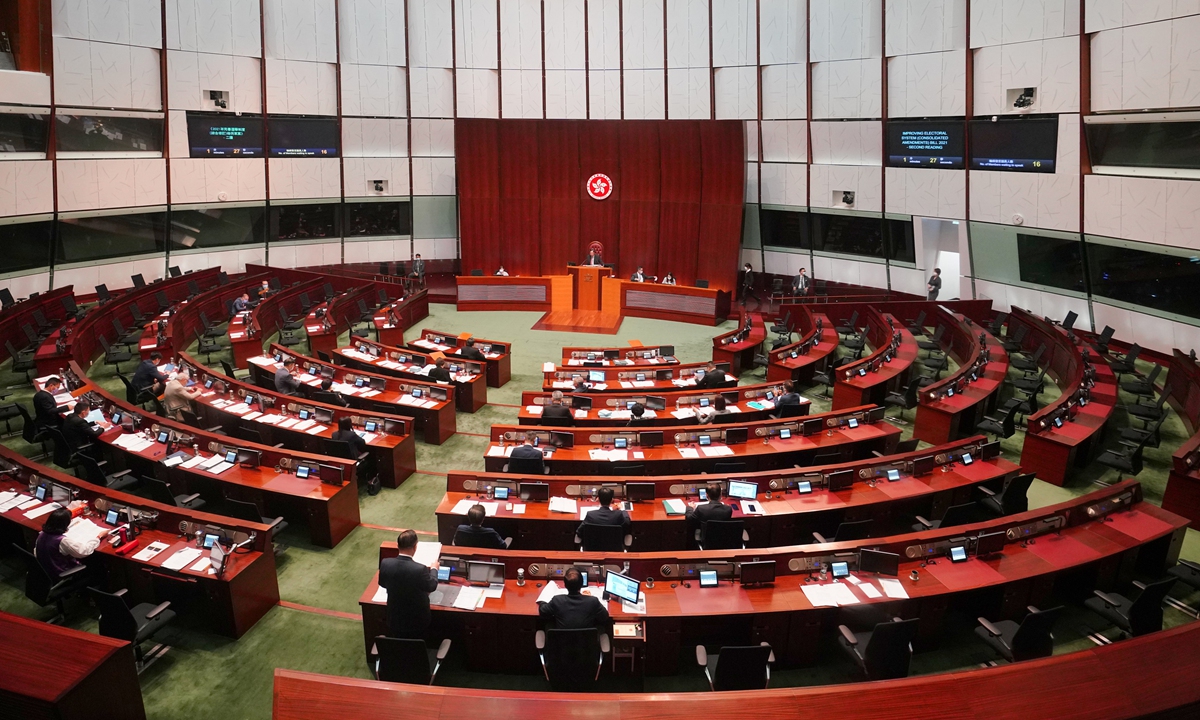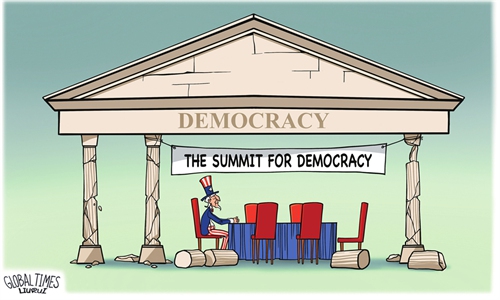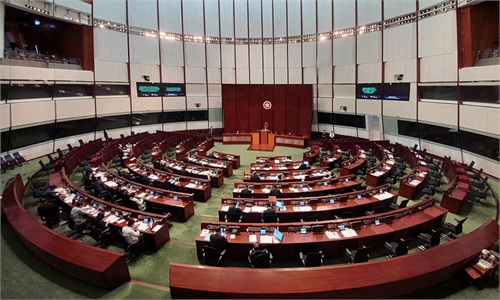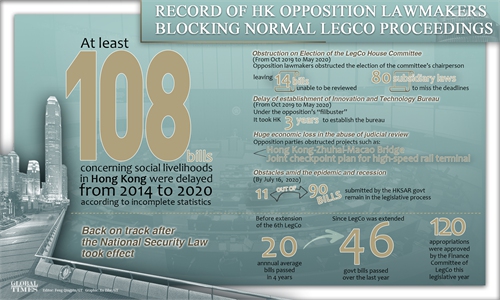Hong Kong’s patriots-only election safeguards democracy in the spirit of ‘one country, two systems’

Legislative Council of Hong Kong (LegCo) Photo: VCG
This Sunday, residents of the Hong Kong Special Administrative Region (HKSAR) will vote in the first legislative council elections since the pandemic began. The election is noteworthy in that it implements new rules on both the vetting of candidates on national security grounds as well as the number of candidates directly elected by the public beyond committees. Some have tried to frame this move as "taking away" democracy and autonomy in Hong Kong in line with the broader Western narrative that has sought to deliberately instigate unrest in the city with the goal of undermining China.The new system, however, is in the best interests of Hong Kong and its people, and it is in line with the spirit of the Basic Law and the principle of "one country, two systems." Not only does it uphold the territory's constitutional loyalty as an inalienable territory of China, but nonetheless tailors the local democracy in tune with the city's distinct socio-economic system and needs which remain different from those of the Chinese mainland, while also preventing the territory from becoming a vehicle for anti-China unrest fuelled by the US and others.
First of all, a test of loyalty for electoral candidates who will take up office is not unique by any stretch, despite the propaganda from the West. In the British Parliament, candidates swear oath and loyalty to the Queen. The Irish pro-reunification party, Sinn-Fein, does not take up its seats when elected for this reason. Likewise in the US, congressmen swear oath to the constitution. It is considered a national scandal if an American officeholder is insufficiently patriotic, which is why foreign policy matters in Congress receive very little dissent. Those who are guilty of treason are banned from running.
While the HKSAR is distinct from Chinese mainland and has its own unique administrative, social, legal and economic system, nonetheless, as the Basic Law specifies, Beijing retains exclusive jurisdiction over its national security, defense and foreign affairs. This is what defines the principle of "one country, two systems." Hong Kong supervises its own local affairs, but the central government takes the lead with matters of national importance. Those who are elected in turn to Hong Kong's localized body are present to supervise such local policy matters, not to promote separatism, subversion and foreign interests.
These national security loopholes were responsible for descending Hong Kong into its worst crisis since its return to China, wherein destructive riots openly backed by US politicians rocked the city, involving sporadic violence and a major social disorder. This itself was a threat to the arrangement of "one country, two systems." As a result, a series of changes had to be made in order to restore harmony, stability and order to Hong Kong while ensuring that the city and its bodies performed their proper constitutional roles. In line with the national security law, the new legislative council was subsequently reorganized, shutting down those who sought to weaponize the body for illicit ends and disruption.
In having committees choose a portion of its representatives, this safeguard ensures that those who are appointed to the legislative council represent the needs and voices of various interest groups throughout the city, including businesses, unions, professions, and so on. This enshrines its designated purpose as a body of local affairs, policymaking and administration in the interests of the city, which the public can also elect candidates to in conjunction with those who are not a national security threat. This guarantees a functional and representative democracy in Hong Kong accordingly, in other words a regional parliament which comes under the Basic Law and the will of the National People's Congress in Beijing, which is the source of all constitutional and legislative power in China.
The upcoming election subsequently ushers in a stable, functional, prosperous and new order in the city of Hong Kong which has overcome the challenge of foreign interference and can now return to its day-to-day affairs. The city ultimately remains a special autonomous region of China and fully upholds its obligations under the Basic Law.
The author is a political and historical relations analyst. opinion@globaltimes.com.cn



